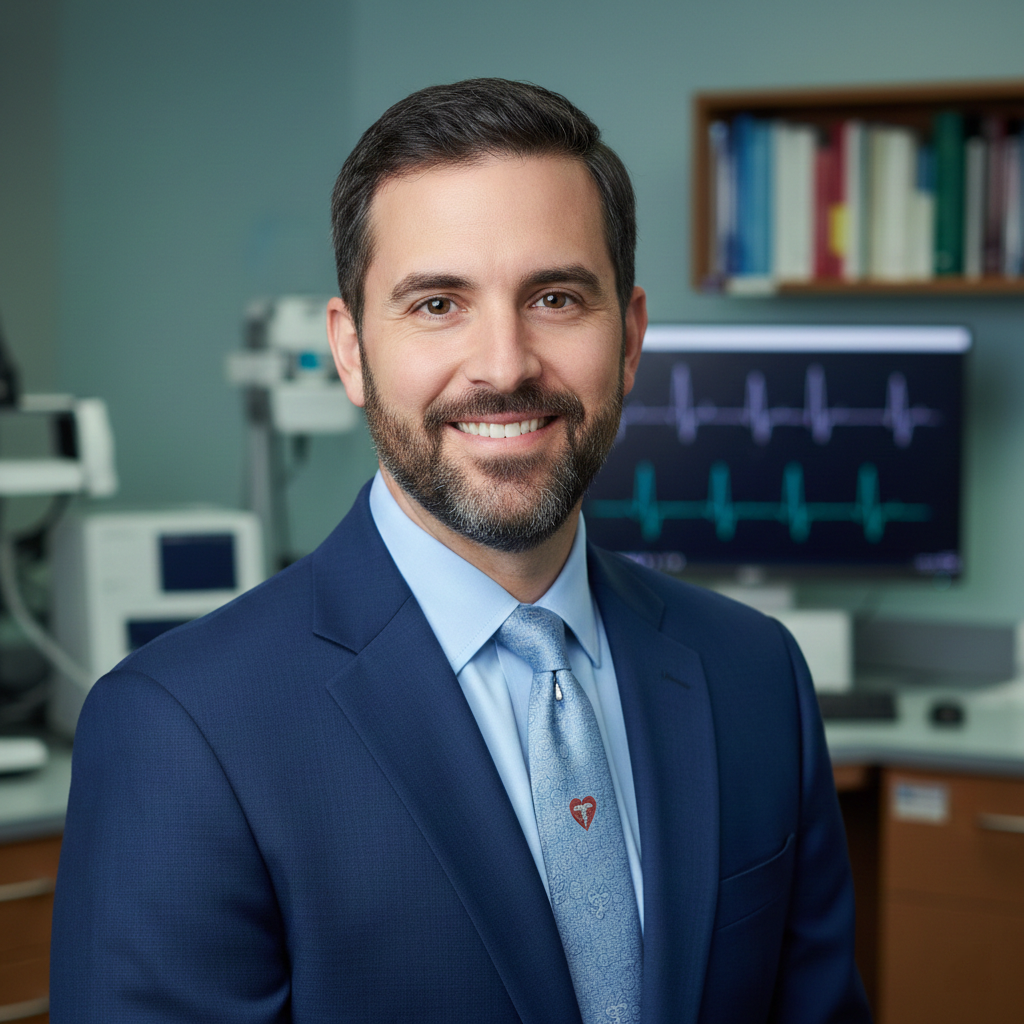
Feeling chest pain that’s sore to touch can be scary and uncomfortable. At Liv Hospital, we get it and want to help you figure out why and find relief.
Chest pain can come from many things, like muscle or bone issues, heart problems, or stomach troubles. NHS inform says that muscle or bone issues, like strained muscles or costochondritis, are often the cause of chest pain that hurts when touched.
We’ll dive into these possible causes in depth. This will help you understand your symptoms better and what steps to take next.
Key Takeaways
- Chest pain can be caused by various factors, including musculoskeletal, heart-related, and digestive issues.
- Musculoskeletal causes, such as strained muscles or costochondritis, are common reasons for chest pain that is sore to touch.
- Liv Hospital’s expert team is dedicated to providing you with a complete understanding of your symptoms.
- Understanding the causes of chest pain is key to finding the right treatment.
- Our team is committed to delivering top-notch healthcare with full support.
Understanding Chest Pain That’s Tender to Touch

When your chest hurts to the touch, it’s normal to worry about what’s causing it. This kind of pain can be from many things, from mild to serious. We’ll look at the difference between pain on the surface and deep in the chest. We’ll also talk about what makes chest wall tenderness common.
Differentiating Between Surface Pain and Deep Chest Pain
Chest pain can be split into two kinds: surface pain and deep chest pain. Surface pain comes from the chest wall, like the skin, muscles, and ribs. It’s sharp and can be felt when touched. Deep chest pain, on the other hand, comes from inside, like the heart or lungs. It feels like a dull ache or a tight squeeze, and might not hurt when touched.
Knowing the difference between these pains helps figure out the cause. Surface pain usually comes from muscle or bone issues. Deep chest pain might mean something more serious, like heart or lung problems.
Common Characteristics of Chest Wall Tenderness
Chest wall tenderness means pain in the chest that gets worse with movement or pressure. It often includes:
- Pain that gets worse with deep breathing, coughing, or moving
- Tenderness when touched
- Pain that stays in one spot
- Pain that comes back when pressed on the same spot
These signs help doctors tell chest wall tenderness apart from other chest pain causes. If your chest pain hurts to touch, seeing a doctor is key. They can find out why and help you get better.
Musculoskeletal Causes of Chest Soreness to Touch

Musculoskeletal issues often cause chest pain that hurts when touched. Knowing about these problems can help ease worries. The musculoskeletal system, which includes muscles, bones, and joints, is key in the chest area. Issues here can lead to a lot of discomfort.
Strained or Pulled Chest Muscles
Strained or pulled chest muscles are a common cause of chest soreness. This can happen from too much exercise, sudden movements, or bad posture. When chest muscles are strained, they can get inflamed and hurt when touched, causing pain.
NHS inform says strained muscles can cause chest pain that hurts when touched. The pain usually stays in the strained area and gets worse with movement or deep breathing.
Chest Wall Injuries and Bruising
Chest wall injuries, like bruising, also cause chest soreness. A direct hit to the chest, like from a fall or car accident, can bruise or hurt muscles and ribs. This can lead to pain that hurts when touched and might have swelling or color changes.
In some cases, the pain from a chest wall injury can be very bad. It might get worse with movement, coughing, or deep breathing. It’s important to watch the pain and get medical help if it doesn’t get better or gets worse.
Rib Fractures and Injuries
Rib fractures or injuries are a more serious cause of chest soreness. They can happen from trauma, like a fall, sports injury, or car accident. When a rib is broken, it can cause sharp pain that hurts when breathing deeply, coughing, or moving.
The pain from a rib fracture can be quite severe. It might need a doctor’s check to make sure there are no other problems, like a punctured lung. If you have severe chest pain after an injury, get medical help right away.
Costochondritis: When Your Chest Is Sore to Touch
If you’re feeling stabbing chest pain, it might be costochondritis. This condition affects the cartilage where your ribs meet the breastbone. It causes inflammation and makes your chest hurt when touched.
What Is Costochondritis?
Costochondritis is when the cartilage between a rib and the breastbone gets inflamed. The Medical organization says this can make your chest hurt, feeling like a heart attack. It’s not always clear why it happens, but it might be from a chest injury or strain.
Symptoms and Diagnosis
The main sign of costochondritis is chest pain, which can be mild or severe. This pain is sharp and hurts when touched. Doctors check for other heart problems first. They might press on your chest to see if it hurts.
Common symptoms include:
- Sharp or stabbing chest pain
- Pain that gets worse with movement or deep breathing
- Tenderness in the chest area
Treatment Options for Costochondritis
Doctors aim to ease the pain and reduce swelling. They often suggest over-the-counter pain meds like ibuprofen or acetaminophen. Applying heat or cold packs can also help.
It’s important to see a doctor to figure out the best treatment. They can also check for other serious chest pain causes.
Inflammatory Conditions Causing Chest Tenderness
Inflammatory conditions in the chest can cause a lot of pain and discomfort. These issues can affect the heart, lungs, and tissues around them. Knowing the causes and symptoms is key for the right diagnosis and treatment.
Pericarditis: Inflammation of the Heart Sac
Pericarditis is when the pericardium, the heart’s sac, gets inflamed. This can lead to sharp chest pain that gets worse when you breathe or lie down. The pain can be very severe and might spread to the neck, arms, or back.
Pericarditis symptoms include chest pain, fever, and feeling tired. Doctors use medical history, physical exams, and tests like echocardiography to diagnose it. Treatment aims to reduce inflammation and pain, often with anti-inflammatory drugs.
Pleurisy: Sharp Pain When Breathing
Pleurisy is inflammation of the pleura, the tissue around the lungs. It causes sharp pain when you breathe in or out. This pain can be very sharp and gets worse with breathing.
Doctors diagnose pleurisy by finding what’s causing the inflammation. Treatment depends on the cause, and may include managing pain and reducing inflammation. Sometimes, pleurisy goes away on its own, but seeing a doctor is important to find the right treatment.
Both pericarditis and pleurisy are serious and need medical help. If you feel sharp pain in the heart when inhaling or a dull ache near the heart, get medical help right away.
Digestive Issues That Can Cause Chest Pain
Chest pain can be scary, and it’s important to know that digestive problems can cause it. While heart issues are common, digestive problems are also a big factor.
Digestive issues can show up in many ways, sometimes like heart problems. Knowing these causes is key for the right diagnosis and treatment.
Acid Reflux and GERD
Acid reflux and GERD are common causes of chest pain. The Medical organization says GERD can make your chest feel like it’s burning. This happens when stomach acid goes back up into the esophagus, hurting the lining.
GERD symptoms include a sour taste, trouble swallowing, and feeling like there’s a lump in your throat. If not treated, it can cause more serious problems like esophagitis or a narrowing of the esophagus.
Esophageal Spasms and Related Conditions
Esophageal spasms can also cause chest pain. These are abnormal muscle contractions in the esophagus that feel like tightness. They can be set off by eating or other things and might be linked to esophageal dysmotility.
It’s important to tell the difference between chest pain from the heart and from the digestive system. Non-cardiac causes, like esophageal spasms, need different treatments.
We’ll keep looking into these conditions. We’ll share more about their symptoms, how to diagnose them, and treatment options.
Cardiac Causes of Dull Aching Chest Pain
Chest pain that feels like a dull ache can come from many sources. Cardiac issues are among the most serious. Knowing the cardiac causes of this pain is key to taking the right steps.
When a Dull Ache Near the Heart Could Be Serious
A dull ache near the heart might signal serious heart problems. Heart attacks and angina are examples. NHS inform says a heart attack blocks blood to the heart, causing chest pain. This is a medical emergency.
Common signs of heart-related chest pain include:
- A feeling of pressure or tightness in the chest
- Pain that spreads to the arms, back, or jaw
- Discomfort that gets worse with activity or stress
Distinguishing Between Cardiac and Non-Cardiac Chest Pain
Telling cardiac pain from non-cardiac pain is important. Cardiac pain feels like a dull ache or pressure. Non-cardiac pain is often sharp, stabbing, or burning.
To tell them apart, look at:
- The pain’s nature and how long it lasts
- What triggers or eases the pain, like activity or rest
- Other symptoms, like shortness of breath or dizziness
If chest pain is persistent or severe, get medical help. This is to find out why and get the right treatment.
Knowing about cardiac causes of dull aching chest pain helps people make better health choices. It also encourages them to get medical help when needed.
Respiratory Conditions and Sharp Stabbing Chest Pain
Respiratory issues can cause sharp stabbing chest pain. This pain is a sign that you need to see a doctor right away. It can be linked to many respiratory problems, from simple infections to serious conditions.
Pneumonia and Chest Infections
Pneumonia is a serious lung infection. It inflames the air sacs in the lungs. This inflammation can lead to sharp pain in the chest, mainly when you breathe or cough.
Symptoms of pneumonia include fever, chills, cough, and trouble breathing. If you have these symptoms, it’s important to get medical help. Pneumonia can be dangerous, more so for older adults and those with weak immune systems.
Pulmonary Embolism: A Medical Emergency
A pulmonary embolism happens when a blood clot blocks the lung’s arteries. This is a medical emergency. It can cause sharp stabbing chest pain that gets worse with deep breaths.
The pain from a pulmonary embolism can be sudden and very severe. You might also feel short of breath, have a fast heart rate, and feel dizzy. You need to get medical help right away to avoid serious problems or death.
Why You Feel Sharp Pain in the Heart When Inhaling
Sharp pain in the chest when you inhale can be caused by several respiratory issues. Pleurisy, an inflammation of the pleura, is a common reason. This inflammation can come from infections, injuries, or diseases, making the pain worse with breathing.
It’s important to know why you have sharp stabbing chest pain. We will work with doctors to find out what’s causing it. Then, we’ll create a treatment plan that fits your needs.
When to Seek Medical Attention for Chest Pains Lasting 24 Hours
Chest pain that lasts more than a day might be serious. It’s important to know when to get medical help. Chest pain can feel sharp, dull, or tender to touch. Knowing how your pain feels helps decide what to do next.
Red Flags: Symptoms That Require Immediate Care
Some symptoms with chest pain mean you need to see a doctor right away. These include:
- Shortness of breath or trouble breathing
- Dizziness or feeling faint
- Severe chest pain or pressure
- Pain spreading to the arm, neck, or jaw
- Nausea or vomiting
- Rapid or irregular heartbeat
If you or someone else has these symptoms, call for emergency care. NHS inform says to get help fast if you think you’re having a heart attack or another serious problem.
What to Expect During Medical Evaluation
When you see a doctor for chest pain, they will check you carefully. They might do:
| Diagnostic Test | Purpose |
| Electrocardiogram (ECG) | To check your heart’s rhythm and look for problems |
| Blood Tests | To see if your heart is damaged or if there’s another issue |
| Imaging Tests (X-ray, CT scan, MRI) | To see your heart, lungs, and other areas |
| Stress Test | To see how your heart works when you’re stressed |
Your doctor will also ask about your health history, symptoms, and lifestyle. This helps figure out why you have chest pain. Then, they’ll suggest the best treatment.
It’s key to listen to your body and get help when needed. Knowing when to get medical help for chest pain that lasts 24 hours can save your life.
Conclusion: Managing and Preventing Chest Wall Pain
Chest wall pain can come from many sources, like muscle issues, inflammation, or digestive problems. To handle and stop chest wall pain, keeping a healthy lifestyle is key.
Exercising regularly, eating well, and standing right can lower the chance of chest pain. The Medical organization says a healthy life can stop many health issues. Try stress-reducing activities like meditation or deep breathing to ease tension that might cause chest pain.
Understanding and fixing the reasons for chest pain is important. If you have ongoing or bad chest pain, get medical help right away. This way, you can avoid chest pain and live a better life.
FAQ
Why does my chest hurt to touch?
Chest pain that hurts when touched can have many causes. It might be from strained muscles or costochondritis. It could also be due to heart or digestive problems.
What is the difference between surface pain and deep chest pain?
Surface pain is on the chest wall and hurts when touched. Deep chest pain is inside and might be from the heart or lungs.
What are the common characteristics of chest wall tenderness?
Chest wall tenderness gets worse with movement or pressure. It causes pain or discomfort in the chest area.
What causes costochondritis?
Costochondritis is an inflammatory condition. It affects the cartilage where ribs meet the breastbone. This causes sharp pain or tenderness in the chest.
How is costochondritis diagnosed and treated?
Doctors diagnose costochondritis by examining you and looking at your medical history. Treatment includes pain relief, rest, and physical therapy.
Can digestive issues cause chest pain?
Yes, issues like acid reflux and esophageal spasms can cause chest pain and discomfort.
What are the cardiac causes of dull aching chest pain?
Heart attacks and angina are cardiac causes of dull aching chest pain. They need immediate medical attention.
How can I distinguish between cardiac and non-cardiac chest pain?
Cardiac pain often comes with shortness of breath, dizziness, or nausea. Non-cardiac pain might be from muscles or digestion.
What are the respiratory conditions that can cause sharp stabbing chest pain?
Pneumonia and pulmonary embolism can cause sharp stabbing chest pain, often when breathing in.
When should I seek medical attention for chest pain?
Seek medical help right away for chest pain lasting over 24 hours. This is true if you also have shortness of breath or dizziness.
What can I expect during medical evaluation for chest pain?
You’ll get tests like electrocardiograms, chest X-rays, or blood tests. There will also be a physical exam and a look at your medical history.
How can I manage and prevent chest wall pain?
A healthy lifestyle, including exercise and a balanced diet, can help. If pain persists, getting medical help is key.
References
- Chaudhry, R. (2022). Physiology, Cardiovascular. In StatPearls. National Center for Biotechnology Information.https://www.ncbi.nlm.nih.gov/books/NBK493197/



































